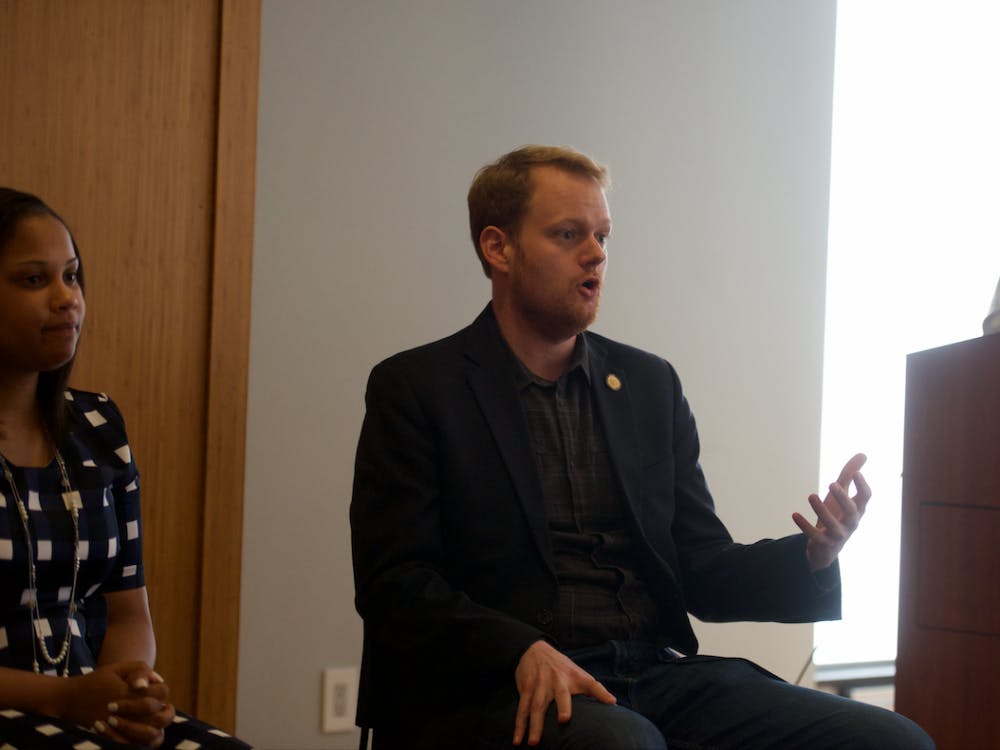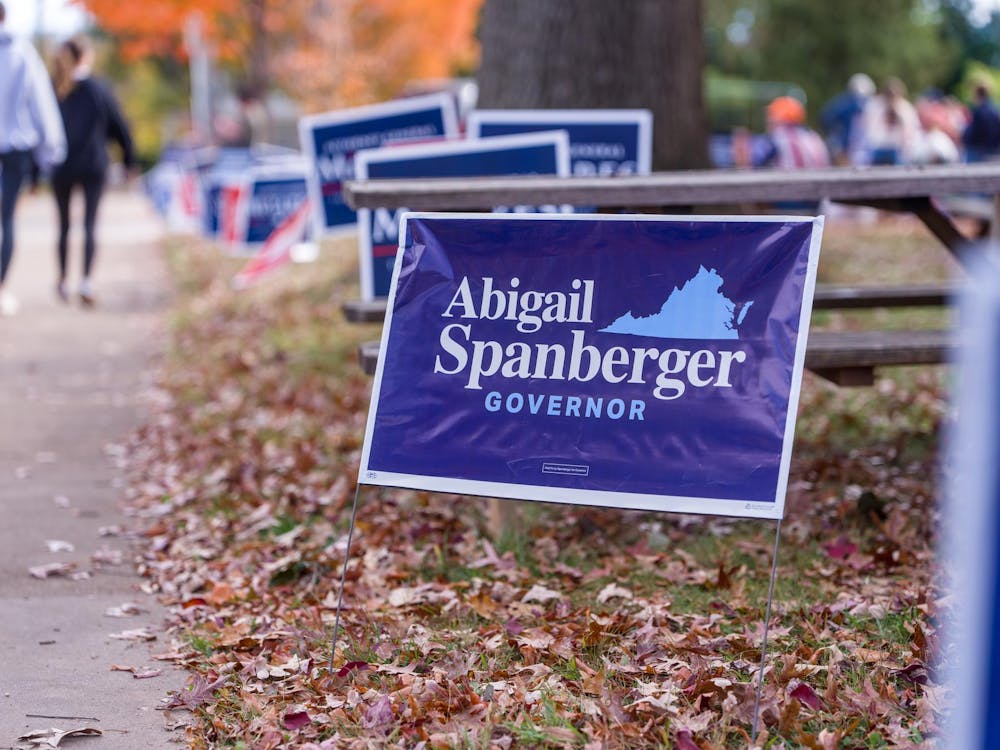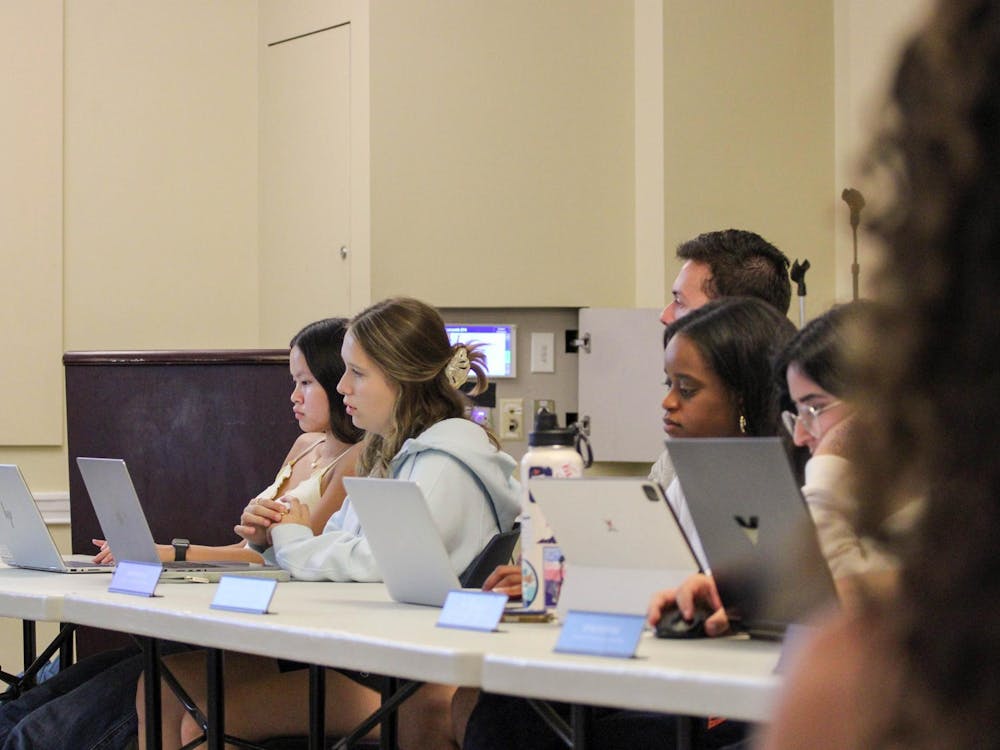The Virginia Young Democrats hosted a dialogue session at CitySpace Sunday in which panelists discussed social justice in Charlottesville and throughout Virginia. Panelists included Del. Chris Hurst (D-Blacksburg), Jennifer Bowles — a Martinsville City Councilor and University alumnus — and Zyahna Bryant, a Charlottesville high school student and local activist.
The panel served as the closing event for VAYD’s annual convention which was held in Charlottesville and at the University this past weekend and included speakers such as Gov. Ralph Northam, Sen. Tim Kaine (D-Va.) and Del. David Toscano (D-Charlottesville).
Newly-elected VAYD president Alexis Rogers moderated the panel and facilitated questions from the audience.
Rogers said the event’s panelists were chosen as they were young, progressive activists, but noted each speaker is intimately involved in local politics in their respective communities.
“I think a lot of young people, when [they] get involved, are thinking about national politics and federal policies and, ‘how do we change the big picture?’” Rogers said. “[But] what does it look like to actually be making change in your local communities [and] in the local government systems?”
Bryant — who started the petition to remove a statue of Confederate Gen. Robert E. Lee from Emancipation Park — said it was important to engage traditionally marginalized voices in local politics.
“Charlottesville is deeply rooted in this hate we saw on August 12,” Bryant said, referring to the deadly Unite the Right rally of last August. “It's not new, it didn't come from out of town, it's here. Unmasking this illusion that Charlottesville is perfect, I think that's where we need to start — and from there getting people who would usually be in the conversation or aren't in the room to be in the room.”
Bowles — the youngest person to be elected to the Martinsville City Council and the first black female to hold the position of vice mayor in Martinsville — said she was inspired to become involved in local politics by University History Prof. Claudrena Harold. Harold taught a class entitled “Black Fire,” which Bowles said taught her about the social and economic fight for justice by African Americans at the University.
Bowles said she thought working in local government would be easier than national politics.
However, she said she has faced racial and gender based discrimination while she campaigned for Martinsville City Council in 2014, and added that she has endured criticism due to her young age.
“I think at the local level, you can make a connection with people,” Bowles said. “In Martinsville where I know people, I was born and raised with them [and] I know their families. It's easier to have conversations with people who are different from you.”
Hurst told the panel he decided to become involved in politics and depart his job as a television news anchor after Alison Parker, his girlfriend and colleague at WDBJ in Roanoke, Va. was gunned down during a live broadcast in 2015.
“I had seen so much and apathy and indifference in our own elected leaders,” Hurst said. “[There are] people who know what the right thing is and are in a position to do the right thing but why don't they do the right thing? They don't have the courage, and they don't have an understanding of the importance and of the urgency of wanting to actually address a lot of the progressive issues.”
Hurst — who was elected to the 12th district seat in 2017, defeating Republican incumbent Joseph Yost — said he’s prioritizing the power of localites.
“The value of wanting to get involved locally is that so many decisions really are incumbent upon our local school boards and boards of supervisors and city councils,” Hurst said. “That's part of the reason why I think we have to reverse our Dillon Rule status as a Commonwealth that says localities can't do anything more than what the General Assembly prescribes … without approval.”
Looking specifically to Charlottesville, Hurst pointed to the Dillon Rule, a doctrine prohibiting localites from carrying out actions not expressly granted to them by the General Assembly. Hurst said the Dillon Rule prevents the City from raising the legal minimum wage for employers in Charlottesville, enacting non-discrimination policies or removing its Confederate statues.
“I think my role is trying to empower local governments to have more control over their communities,” Hurst said.
In response to a question from Rogers about local political activism, Bryant said it was necessary for the Charlottesville community to actively confront and respond to persistent racial inequality rather than superficially addressing the matter through conversions and panel discussions alone.
“When it comes to white supremacy, I think we need to stop giving them a platform,” Bryant said. “Stop pushing the both sides narrative, it’s not right, and it’s actually very dangerous. The reality is we can’t love redlining away, we can't love gentrification away so we have to have those tough conversations no matter how tough they are.”
Hurst, drawing upon his experience as a local journalist, criticized the notion of providing a false equivalency for white supremacy and its opponents.
“Local news is different fundamentally from other types of media,” Hurst said. “ I think there is a value for local news to be objective in terms of trying to get all sides and trying to represent all sides… [but] we cannot just continue to have a discourse of ‘well this side says this about social injustice or white supremacy, and now we have to talk to the white supremacists about their opinion.’”
Hurst added that the opinions of white supremacists are well known and need to be condemned.
“We know what their opinion is,” Hurst said. “We all as a country and as a society need to understand what their opinion is and then make sure we reject it wholeheartedly… just being able to get all sides of an issue a lot of times doesn't give us greater clarity, it actually makes things more confusing.”
Michael Blake, Democratic National Committee vice chair and a New York Assembly Member, delivered the closing address for the event stating that social justice activism must continue beyond single events or demonstrations.
“I think it's critical for us to appreciate that we have more work to do,” Blake said. “We’ve been a part of a lot of different events and rallies and meetings, but that's not enough right now… It’s not about this meeting, it’s not about this one day, It's about what are you going to do to keep changing the game. After the march, make them remember you.”







